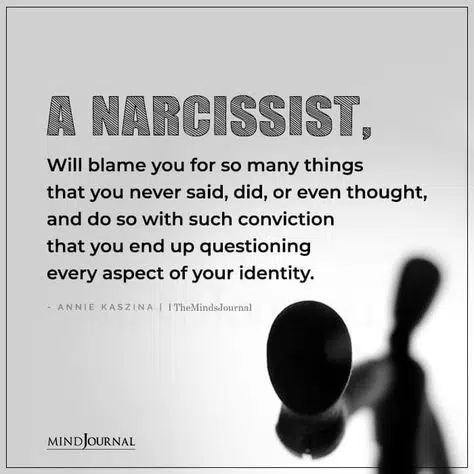The charming and seductive narcissist will charm you easily and captivate your attention to take advantage of you. You can easily be fooled by their charm and become a puppet in their crafty hands.
As a psychiatrist, I strongly believe that it is important to know about the narcissistic personality so you can have realistic expectations when dealing with coworkers, friends, or family members who may have some of these qualities.
In “Emotional Freedom” I describe how to recognize a narcissist. Here are some ways: Their motto is “Me first!” Everything’s all about them. They have a grandiose sense of self-importance and entitlement, crave admiration and attention. A legend in their own mind, the world is reflected in their image. They’ll corner you at a party, recount their life saga.
Related: Manipulation Of The Charming Narcissist
Some narcissists are unlikable, flagrant egotists. Others can be charming, intelligent, caring–that is, until their guru-status is threatened. When you stop stroking their ego or beg to disagree, they can turn on you and become punishing. Once you catch onto this pattern, a narcissist seems about as charming as a banana peel.
These people are so dangerous because they lack empathy, have a limited capacity for unconditional love. Sadly, their hearts either haven’t developed or have been shut down due to early psychic trauma, such as being raised by narcissistic parents, a crippling handicap both emotionally and spiritually. (The damage of narcissistic parenting is outstandingly detailed in Alice Miller’s Drama of the Gifted Child).

Hard as it may be to comprehend, these people have little insight into their actions, nor do they regret them. Though often highly intuitive, they mainly use intuition for self-interest and manipulation.’ As the Hassidic proverb cautions, “There is no room for God in him that is full of himself.”
To find out if you’re dealing with a narcissist, ask yourself the following questions from “Emotional Freedom.”
Quiz: Am I In A Relationship With A Narcissist?
- Does the person act as if life revolves around them?
- Do I have to compliment them to get their attention or approval?
- Do they constantly steer the conversation back to themselves?
- Do they downplay my feelings or interests?
- If I disagree, do they become cold or withholding?
If you answer “yes” to one or two questions, it’s likely you’re dealing with a narcissist. Responding “yes” to three or more questions suggests that a narcissist is violating your emotional freedom.
Narcissists are hard nuts to crack. With these patients, the best I can do is align with their positive aspects and focus on behaviors that they agree aren’t working. Still, even if one wants to change, progress is limited, with meager gains.
My professional advice: Don’t fall in love with a narcissist or entertain illusions they’re capable of the give and take necessary for intimacy.
In such relationships, you’ll always be emotionally alone to some degree. If you have a withholding narcissist spouse, beware of trying to win the nurturing you never got from your parents; it’s not going to happen. Also, don’t expect to have your sensitivity honored. These people sour love with all the hoops you must jump through to please them. If a narcissist is draining you emotionally, use these methods to get your power back.
Related: Micromanipulation: How Narcissists Use This As A Method of Control
Lower Your Expectations And Strategize Your Needs
1. Keep your expectations realistic.
Enjoy their good qualities, but understand they’re emotionally limited, even if they’re sophisticated in other ways. Accepting this, you won’t continue asking something of friends, family, or coworkers they can’t give. Consider this definition of insanity: when you repeat the same actions but expect a different response.
2. Never make your self-worth dependent on them.
Don’t get caught in the trap of always trying to please a narcissist. Also, protect your sensitivity. Refrain from confiding your deepest feelings to someone who won’t cherish them.
3. Show how something will be to their benefit.
To successfully communicate with narcissists, frame things this way. Stating your needs clearly rarely works, nor does getting angry, or demanding. Alternatively, speak to what means something to them. Instead of saying to your spouse, “I’d really enjoy going to a family dinner,” reframe it as, “Everyone really likes you. They’d be delighted to have you there.”
Or instead of saying to your employer, “I’d prefer to work fewer nights,” say, “I can bring in more revenue for your company during these hours.” Naturally, it’s better not to have to contend with the tedious ego-stroking of a narcissist. But if the relationship is unavoidable, use this technique to achieve your desired outcome.
Adapted from Dr. Judith Orloff’s Guide to Intuitive Healing: 5 Steps to Physical, Emotional, and Sexual Wellness
Written by Dr. Judith Orloff MD Originally appeared on Dr. Judith Orloff MD











Response
Good Article